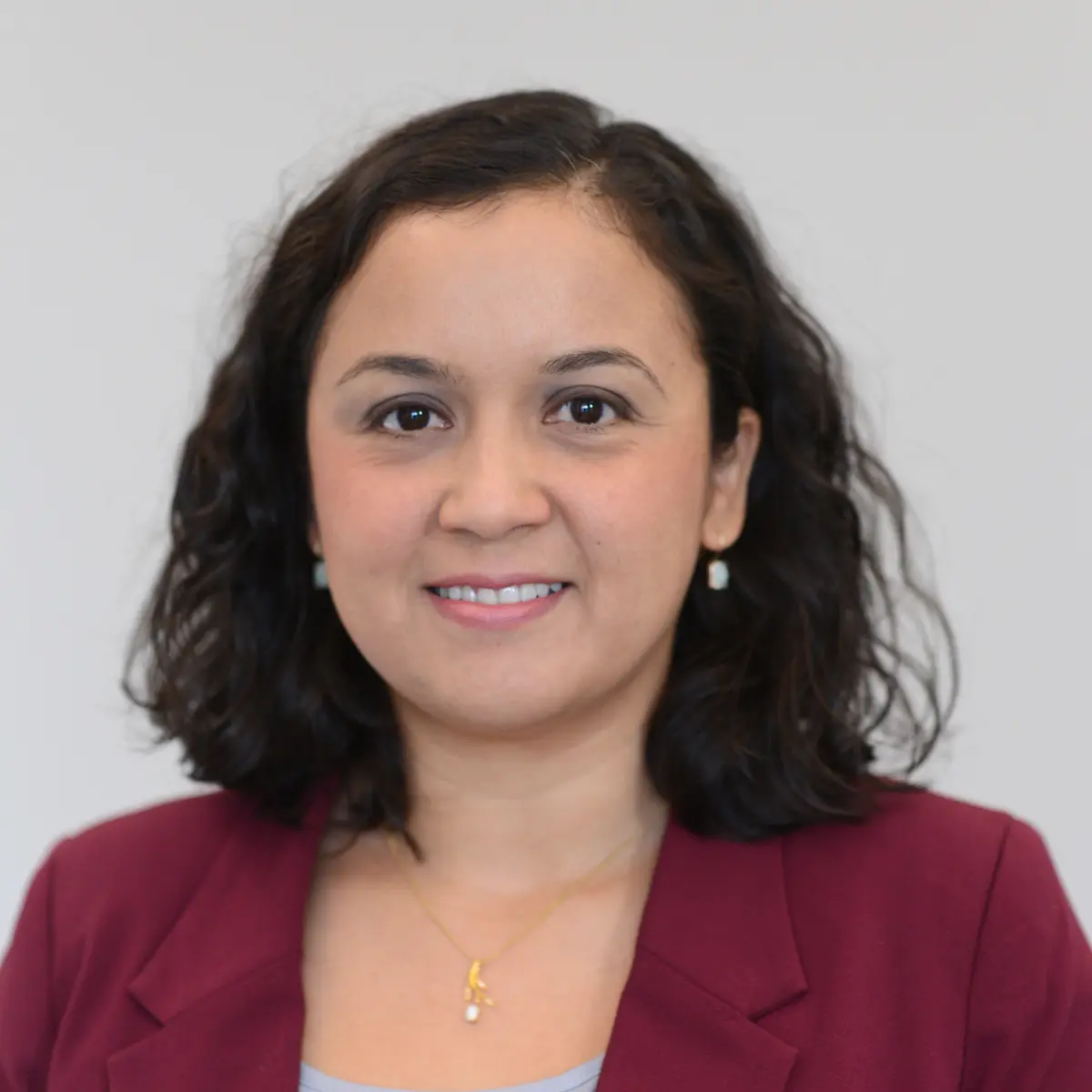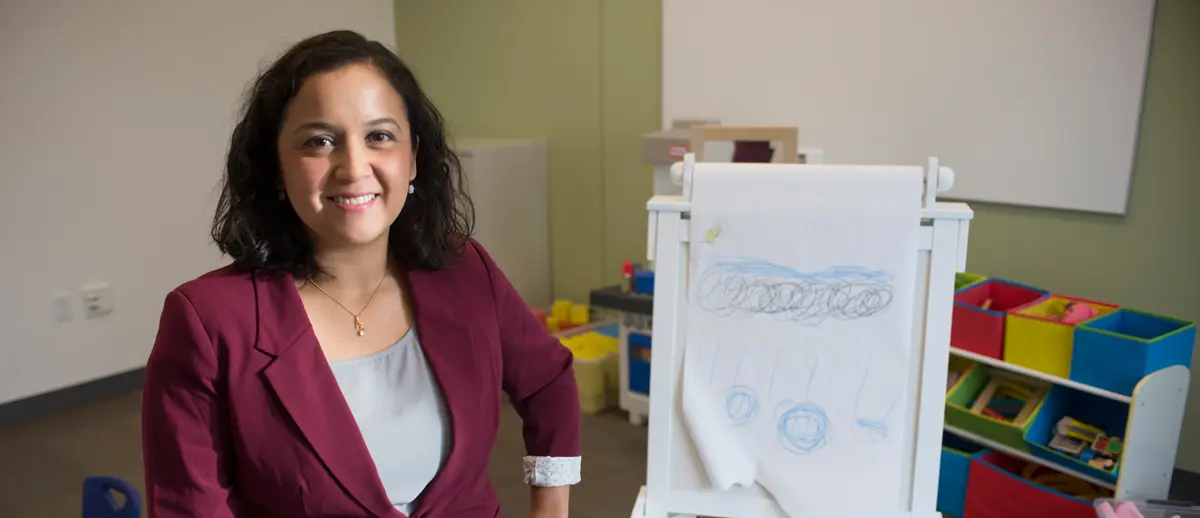Massachusetts is a leader in providing early childhood intervention for children with autism spectrum disorder (ASD), but it’s harder for some families to get services than others – especially families facing language, cultural and other barriers.
That’s where Rocio Rosales, Ph.D., focuses her research and practice, whether she’s teaching students in the master’s program in Autism Studies or running a support group for families, many of whom are multilingual.
“Coming myself from a home where I grew up speaking Spanish, it’s definitely a topic that’s close to my heart,” she says.
She’s particularly interested in the question of language itself. The first family she ever worked with as an undergraduate had been instructed to speak only English to their 6-year-old autistic son. She thought it was odd, since they spoke Spanish to each other and their daughter.
Rosales says many professionals believe that because a classic symptom of ASD is a delay in speech, it will confuse the children to hear English at school and another language at home. But she has found no evidence for that belief, either in the research literature or her own work.
“I think of that family a lot,” she says. “If we limit what the children hear, especially when their parents aren’t fluent in English, then they won’t have a model for language in all its richness. We want them exposed to as much language as possible.”
Rosales, who supervises master’s students who are training to become Board Certified Behavior Analysts (BCBAs), involves both undergraduates and graduate students in her research, which often involves just one or two children. Individuals with ASD are all so different that sometimes that’s the best way to start looking at what’s effective and what’s not, she says.
“That’s the part of my job that I love – that mentoring piece and getting students excited about the integration of application and research,” she says.
Much of Rosales’ research goes hand-in-hand with thesis work by her master’s students. For example, one student compared two approaches to teaching vocabulary words to a child from a bilingual home: one in which the child learned the set of words only in English, and the other in which the child learned a set of words in both English and their home language. The results are preliminary, and Rosales hopes to expand that area of her research with community partners.
Rosales also studies effective ways to train the teachers and paraprofessionals who work with children with ASD on a daily basis, to make sure they understand how to carry out the interventions prescribed by a BCBA for each individual child.
“If you have a plan, but it’s not implemented as written, it’s not effective,” Rosales says.


